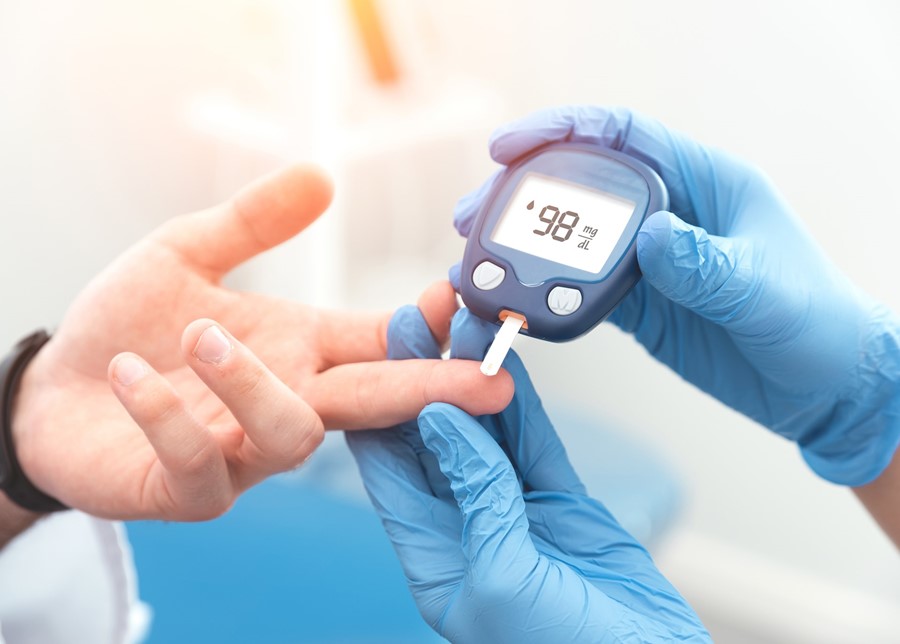According to latest figures from Diabetes UK, one in ten over 40s now has Type 2 diabetes, and the number of people living with all types of diabetes has reached 4.7 million in the UK. The number of people affected by diabetes is expected to reach 5.5 million by 2030
The pressure on the NHS for Diabetes related disease will be unprecedented, and we all need to acknowledge that this is a “lifestyle disease” that can be prevented
In This Newsletter:
-
10 top-tips to help prevent Type 2 Diabetes
-
Essential nutrients to help prevent and control it
-
Dietary tips to help prevent it
10 Top-Tips:
-
Take a risk assessment test through your GP or a Diabetes association
-
Eat a balanced healthy diet (see later section)
-
Exercise regularly to help regulate blood sugar levels and cholesterol
-
Manage your weight
-
Quit smoking
-
Limit alcohol consumption
-
Control your blood pressure – exercise will help
-
Avoid processed food
-
Reduce your risk of cardiovascular disease
-
If you are at risk, have regular health checks
Essential Nutrients To Help Prevent And Control Type 2 Diabetes
The Foodstate Company Glucose Control Formula: Our 100% Foodstate multi-nutrient has been created from significant research to offer optimum support to Type 2 sufferers or those at risk
Product Benefits: Our formula provides nutrients that:
-
Help alleviate Diabetes Mellitus Type 2.
-
That help regulate blood sugar.
-
That deliver potent antioxidant activity.
-
Help protect against harmful lipid peroxidation.
-
Improve the body's metabolism of glucose.
-
Lower elevated sorbitol levels & serum trygliceride levels.
-
Lower total serum cholesterol levels.
-
Help prevent/retard progression of cataracts.
-
Help protect against heart disease.
There are 2 Minerals that deserve particular mention:
-
Magnesium: Magnesium is involved in hundreds of biochemical reactions in your body, and deficiency can contribute to significant health problems. Two common health consequences of Magnesium deficiency are Type 2 diabetes and heart disease
Low magnesium levels have been linked to insulin resistance, a precursor to Type 2 diabetes, as it impairs your body’s ability to regulate blood sugar, which is important for the prevention of Type 2 diabetes. Low Magnesium levels are associated with high blood pressure and diabetes, both of which contribute to heart disease
-
GTF Chromium: GTF stands for Glucose Tolerance Factor, and as well as helping the body regulate blood sugar levels it also helps to metabolise carbohydrates, fats and protein as it enhances the action of insulin, the body’s fat storage hormone. Our Foodstate Chromium is made from a species of broccoli that has been hydroponically grown in a chromium rich environment. As such it is a wholefood form of the mineral with high bio-availability
Dietary Tips for Type 2 Diabetes. Certain Foods Can Help Prevent and Control Type 2 Diabetes:
Fruit: Bilberry may lower blood sugar and improve Insulin sensitivity. Guava may (temporarily) lower blood sugar levels
Grains: High consumption of Grains and Oat Bran may reduce the risk of Type 2
Increased consumption of Brans may reduce cardiovascular disease
Herbs: The following Herbs may lower blood sugar levels and improve insulin sensitivity:
Aloe Vera, American ginseng, ashwagandha, banana leaf, carob, chilli, golden root, green tea, holy basil, jiaogulan, kino, lyceum, milk thistle, mulberry leaf, neem, noni, salacia oblonga, stevia
-
Bay Leaves may help to prevent/alleviate Type 2
-
Cinnamon may lower blood sugar, total serum cholesterol, LDL cholesterol and serum triglycerides levels in type 2 patients.
-
Ginger may improve Glucose tolerance in Type 2 patients.
-
Ginkgo biloba it may reduce oxidative stress and stimulate pancreatic function.
-
Gymnema Sylvestre may alleviate symptoms of Type 2 and may help to prevent the onset of Type 2 by supporting the function of the pancreas.
-
Korean Ginseng may correct side effects of Type 2, may improve control of blood sugar, may enhance the release of Insulin from the pancreas, may increase the number of Insulin receptors and may increase energy levels.
Legumes: Increased consumption may help to prevent diabetes and may assist in its management.
Mushrooms: Maitake mushrooms may lower elevated blood sugar levels.
Nuts: Frequent consumption of nuts may help to prevent Type 2.
Oils: Fish Oils may lower elevated serum triglycerides levels in Type 2 patients.
Seafood: Frequent consumption of fish may reduce the risk of developing Type 2
Seeds: Fenugreek Seeds and Psyllium Seeds may lower blood sugar levels.
Flax Seeds may help to prevent diabetes mellitus type 2.
Vegetables: Frequent consumption of Vegetables may reduce the risk of developing Type 2
Yeasts: Brewer’s Yeast (9 grams per day) may normalise blood sugar levels, may improve glucose tolerance and may improve insulin sensitivity primarily due to its chromium content.
And if you are inclined to ignore health concerns about refined sugar:
-
In tests, rats that had sugar removed from their diets lived twice as long
-
It increases the risk of heart disease
-
It suppresses the immunity and increases the risk of breast and colon cancer
-
It disrupts the digestion and is a likely contributor to Crohn’s and Ulcerative colitis
-
It is likely to increase ADHT, autism, depression, drowsiness and affects spatial awareness
-
It causes a temporary rise in blood sugar and can lead to Diabetes
-
It increases undesirable LDL cholesterol
-
It causes obesity and increases the accumulation of visceral fat
-
It causes the excretion of many vitamins and minerals
-
It causes tooth decay and accelerates wrinkly skin






